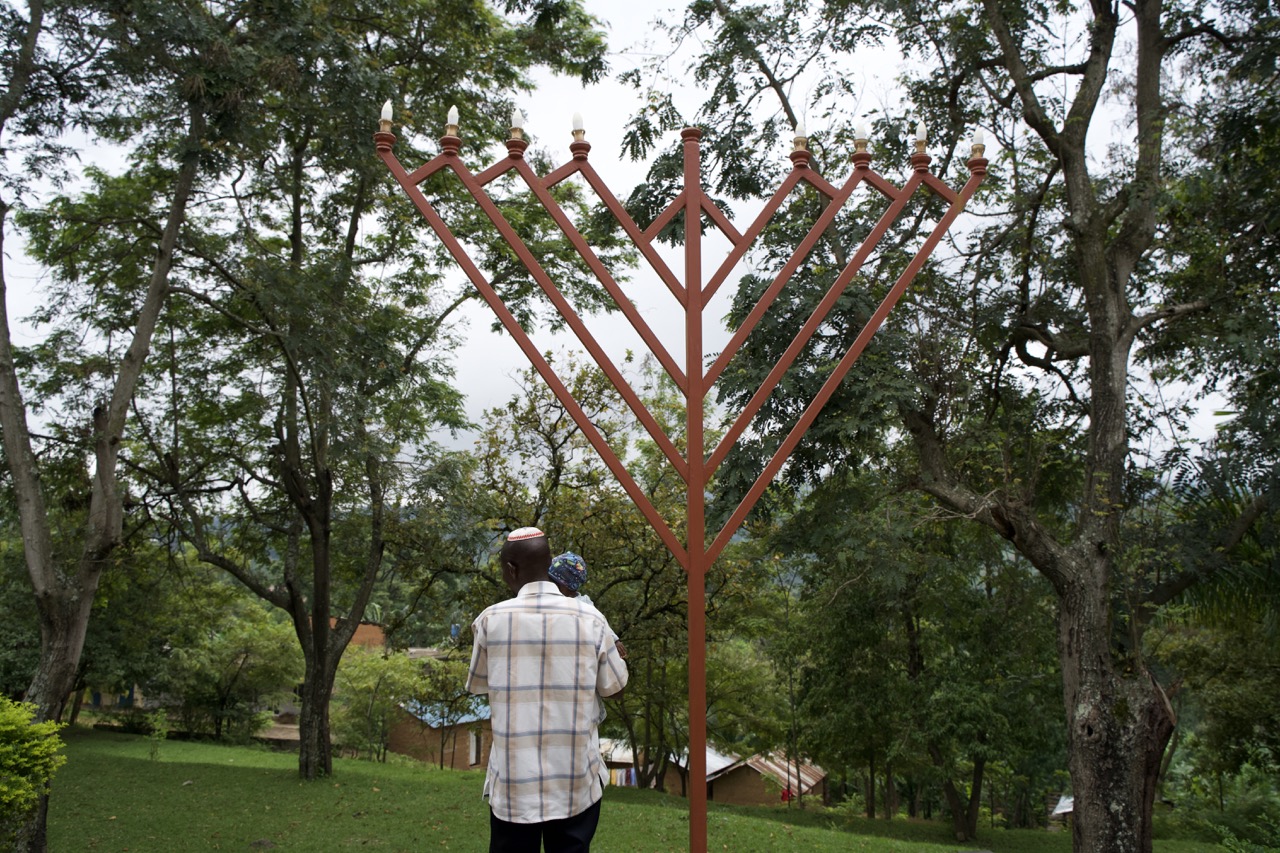After years of division, coffee is bringing Jewish farmers in Uganda closer to their neighbors
- Once shunned as outsiders and forbidden to worship under Idi Amin, Uganda’s Jews are now building peace with the same Christian and Muslim neighbours who once turned them away.

Mbale, Uganda (Minority Africa) — Yunus Bitenge strolls through his coffee plantation, identifying which trees bear beans ready for harvest. This plantation stretches across four acres, and he points to another in the distance—over two acres, he says.
At 56, Bitenge is many things: a farmer, a village chairman, and a Muslim man whose eyes have seen and experienced the fraught history of Nabugoye village in the eastern district of Mbale, Uganda.
After the inspection, he leads us home, taking a route that cuts through the compound of Stern Synagogue—the main place of worship for the Abayudaya, a Jewish community in Uganda. His house sits directly behind it.
Years ago, this proximity would have been unthinkable. Bitenge belongs to a faith that once persecuted many of the Abayudaya. He was born when religion determined whether one lived in dignity or in fear. Back then, faith wasn’t just a spiritual identity; it was a political weapon. In Mbale, the Abayudaya bore the brunt of that danger.
Outlawed under Idi Amin, their synagogues were seized, their movements restricted, and their faith vilified by neighbouring religious groups.
Bitenge remembers it well.
“We were taught not to associate with them,” he says, “They weren’t Christian, they weren’t Muslim. And if you don’t understand something, you fear it. You hate it.”
“Hatred is taught,” he continues, “and from a young age, we were cautioned to segregate the community and anything that pertains to it. But time has a way of softening hard lines. And coffee, of all things, became the unexpected bridge between neighbours once divided by fear.
Here, Muslims, Christians, and Jewish farmers till the same soil, share the same markets, and sit in the same co-op meeting. Their relationship is fueled not just by economics, but by a shared desire to rebuild what history broke.
A history of fracture
The Abayudaya are a community born of rebellion by the then spiritual leader Semei Kakungulu. When the community was formed in 1919, it found a landscape already shaped by Christianity and Islam.
At the time, faith dictated nearly everything—education, health care, trade, even one’s standing in the community. Religion was a kind of apartheid.
Coexistence was difficult. Christians and Muslims were already fighting over the “true faith,” and Abayudaya became a third front. Both sides sought to convert them.
When Idi Amin Dada outlawed Judaism and any form of faith that had similarities to it in Uganda, the Abayudaya community faced all forms of violence, and many who refused to convert were forced into hiding.
When freedom of worship was restored, the Jews started to rebuild. But in a predominantly Muslim district, the bias and resentment ran deeper than the law could mend.
There were many underlying issues that brought animosity. During the reign of Idi Amin, some synagogues had been appropriated as mosques and churches.
“As Jews, we had to fight to get our land and properties that had been possessed by Muslims and other faiths,” says Sisiri Israel, an elder and former chairperson for the Jewish community, “and eventually we had court cases that settled the matter and the land returned to the Jewish community.”
This left a bitter taste with the Muslims and strained the already sour relationship.
Sisiri recalls when people in the community accused them of being rebels simply because they gathered on ancestral land to worship and rebuild. “The RDC (Residence District Commissioner) at the time came here and checked on us, but to our surprise, he recognised that we were just people trying to rebuild the little that was left of us. Besides, this very land had been given to us by the son of Kankungulu.”
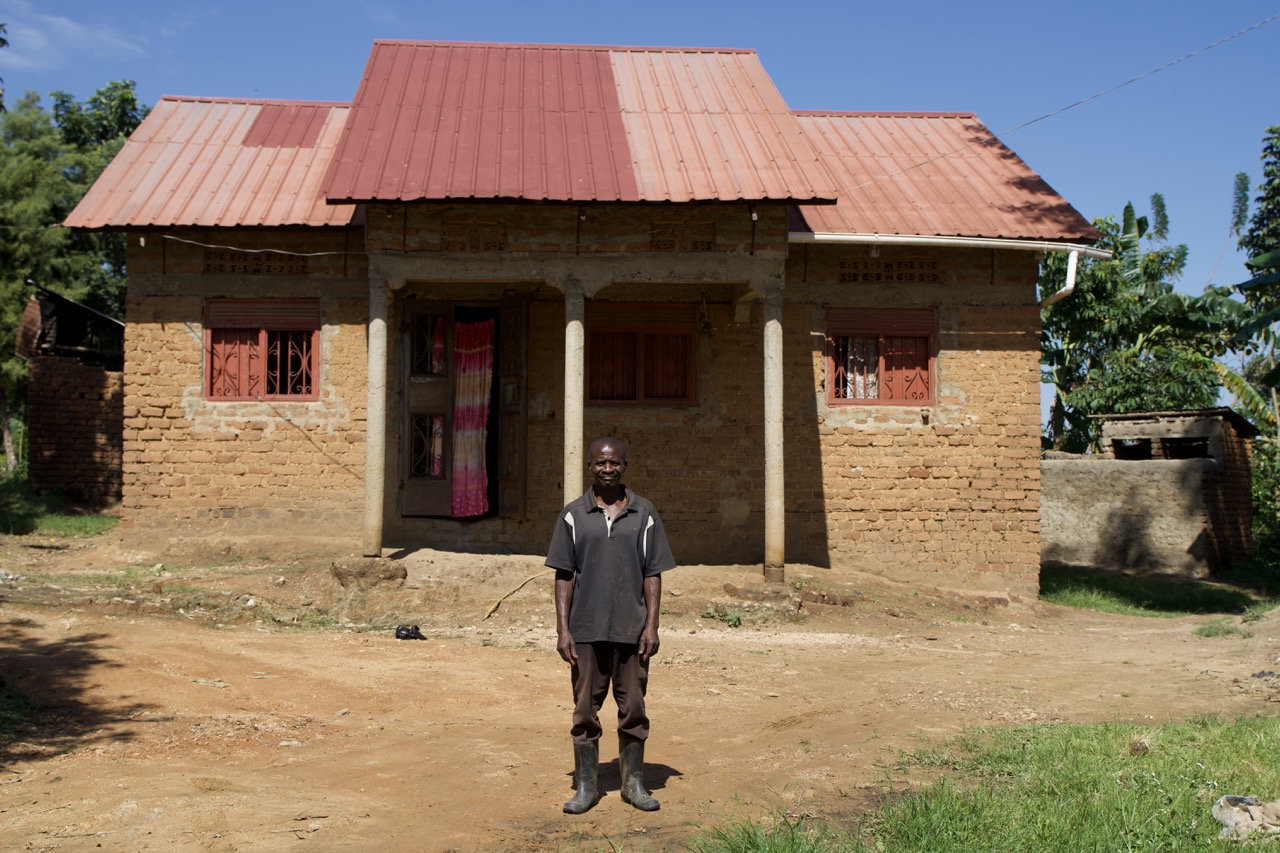
Born of Trauma
In 2001, JJ Keki, a Jewish farmer and brother of the Stern Synagogue’s rabbi, travelled to New York for a speaking tour arranged by the nonprofit organisation Kulano. While there, he witnessed the 9/11 attacks.
“When our community was opened up to the outside world, we got visits from all over the world and among those were Kulano, an organisation that supports isolated Jewish communities,” Rabbi Gershom Sizomu, JJ’s brother, explains. JJ saw firsthand what religious hatred could do. He came back determined to make sure they avoided a similar tragedy back home, where they were also living amid religious tension.
On his return, JJ and other community members started mobilising neighbours around one idea: peace. They formed a cooperative open to all faiths for anyone who yearned for peace. They named it Mirembe Kawomera, which translates to “Peace is sweet.”
“We are neighbours, we grew up together, and the differences we had were really inherited,” Bitenge says. “But above all, we were tired of the endless fights, so when it was suggested that we come together for the development of our community, many of us jumped at the opportunity.”
Peace alone, however, was not enough. The community needed a project that would bind them as a group and bring economic opportunities.
Coffee became that bond. The idea for a coffee cooperative arose during a brainstorming session between Keki, his brother Gershom Sizomu, and the Uganda coordinator for Kulano. “We decided to take advantage of the fact that most people in this area are farmers and the biggest cash crop is coffee,” Gershom says.
Before the cooperative, many in Nabugoye farmed only subsistent crops, and a large portion of land remained unused. They didn’t know how to trade the coffee even if they could. There, the co-op found the missing link.
“Our biggest cash crop in Mbale is coffee,” explains Ariyel, a Jewish farmer, “so instead of thinking small and selling on a small scale, the co-op helped us think more on a large scale and at a market rate that was more favourable than the local market.”
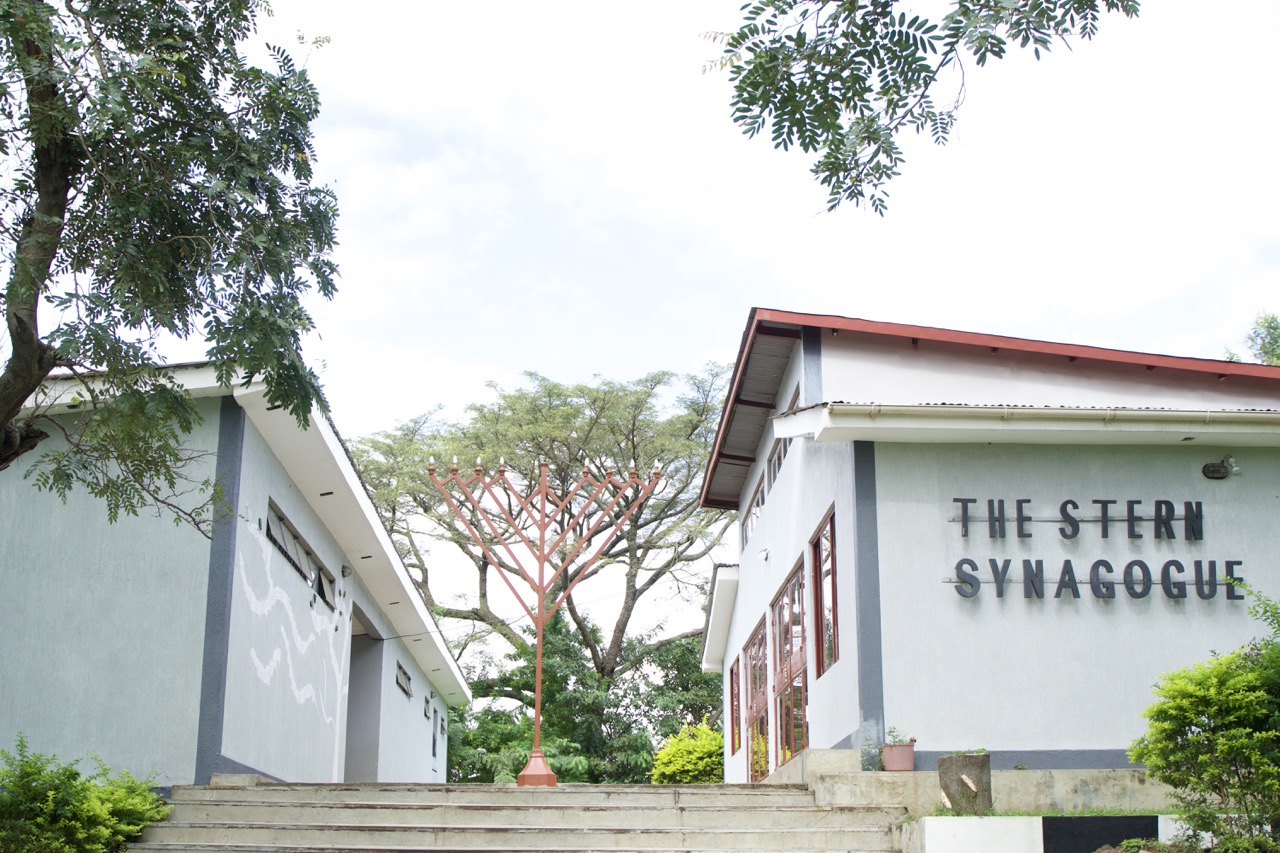
As individual farmers who grew on a small scale, they had no power to negotiate for a better price if they felt an offer was too low, as they did not have enough product to offer. The co-op bridged that by leveraging the market and raising the economic level of the entire community, regardless of denomination.
“We purposed to provide fair trade certification where the farmers were guaranteed a price floor, or call it minimum payment, which protected them, it’s business, the market, especially the coffee market can be very hostile,” Gershom explains
The group brought together over 250 farmers, and over a decade, the farmers traded their coffee both locally and internationally with Thanksgiving Coffee, an international organisation, being the biggest buyer. With this coalition, they won awards and grants, which enabled them to be recognised internationally not just as a symbol of peace but as providers of quality coffee.
In 2014, the cooperative faltered. They failed to deliver the promised 250 sacks to Thanksgiving Coffee. Accusations of underpricing, embezzlement, and mismanagement surfaced. JJ himself was accused of diverting funds meant for infrastructure. Members felt cheated.
A former mobilizer and member of the co-op felt that his work was all a waste. “I used to go trying to mobilise as many farmers as possible so that we can make the needed amount, but they really never valued our efforts,” he says. “Imagine after all that, someone buys your coffee at a very low rate, only for you to find out that they were reselling it at a higher price and worse, sending poor quality.”
The mistrust, anger, and division that the co-op had been built to overcome now returned.
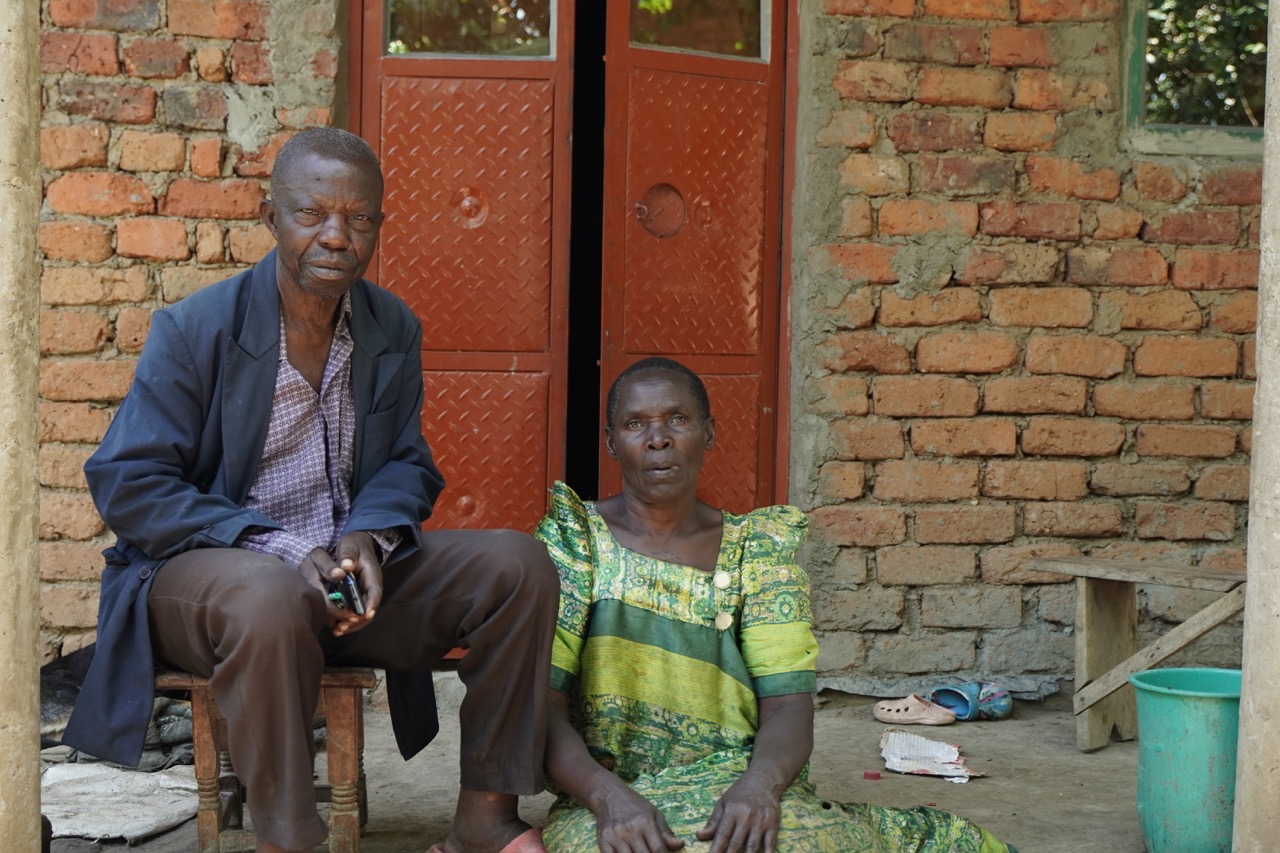
Rising again
Yet even in collapse, the idea endured. Thanksgiving Coffee engaged the co-op’s board to investigate. In a media journal, CEO & Co-Founder of Thanksgiving Coffee, Paul Katzeff, writes about why Mirembe Kawomera failed to fulfil its end of the bargain, citing allegations of corruption and embezzlement.
Allegations aside, one thing remained true: no one wanted to return to isolated farming. Together was still better than alone. After a meeting between leaders and farmers, a resolution was made. There would be a new, more transparent co-op—the Namanyonyi Community of Shalom Coffee Cooperative (NCSCC).
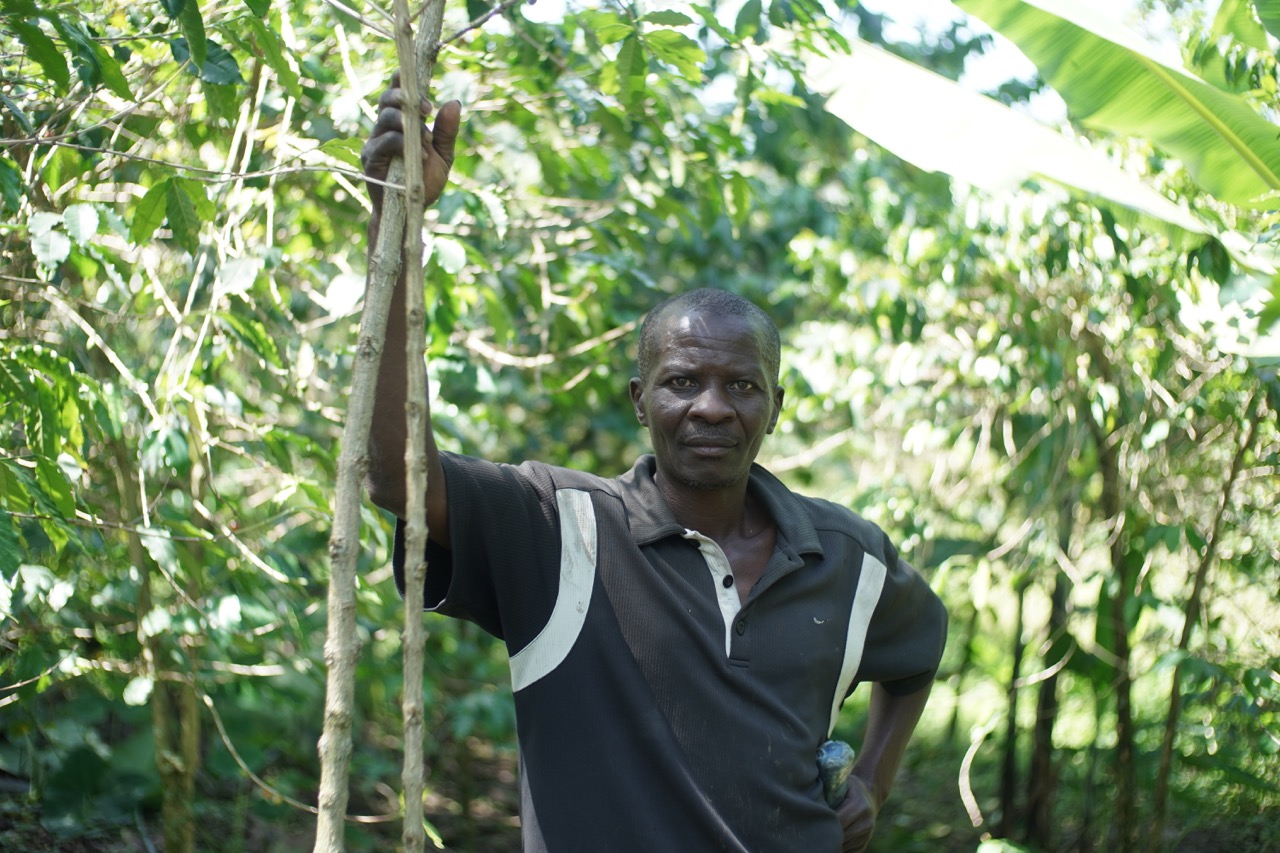
Drawing from the lessons of Mirembe Kawomera, they set stricter systems, elected new leadership, and focused on accountability. By 2018, they were exporting over 30,000 pounds of coffee, earning four times the local price.
While the scars remain, there was a profound shift: people learned to live beyond old hostilities and appreciate and value what each community contributes to the whole.
As Yunus skins beans, he reflects: hate kept them behind, while peace brought shareable development and growth.
“I speak not just for myself but for many in this community,” he says. “While we have our differences, they [the Jews] brought electricity, built schools, access to clean water and health centres and many other things. These are the benefits I get, yet I am a muslim. I don’t think we’d have that if we didn’t work on having peace as a community.”
Edited/Reviewed by PK Cross, Caleb Okereke, Uzoma Ihejirika, and Kenneth Awom.

